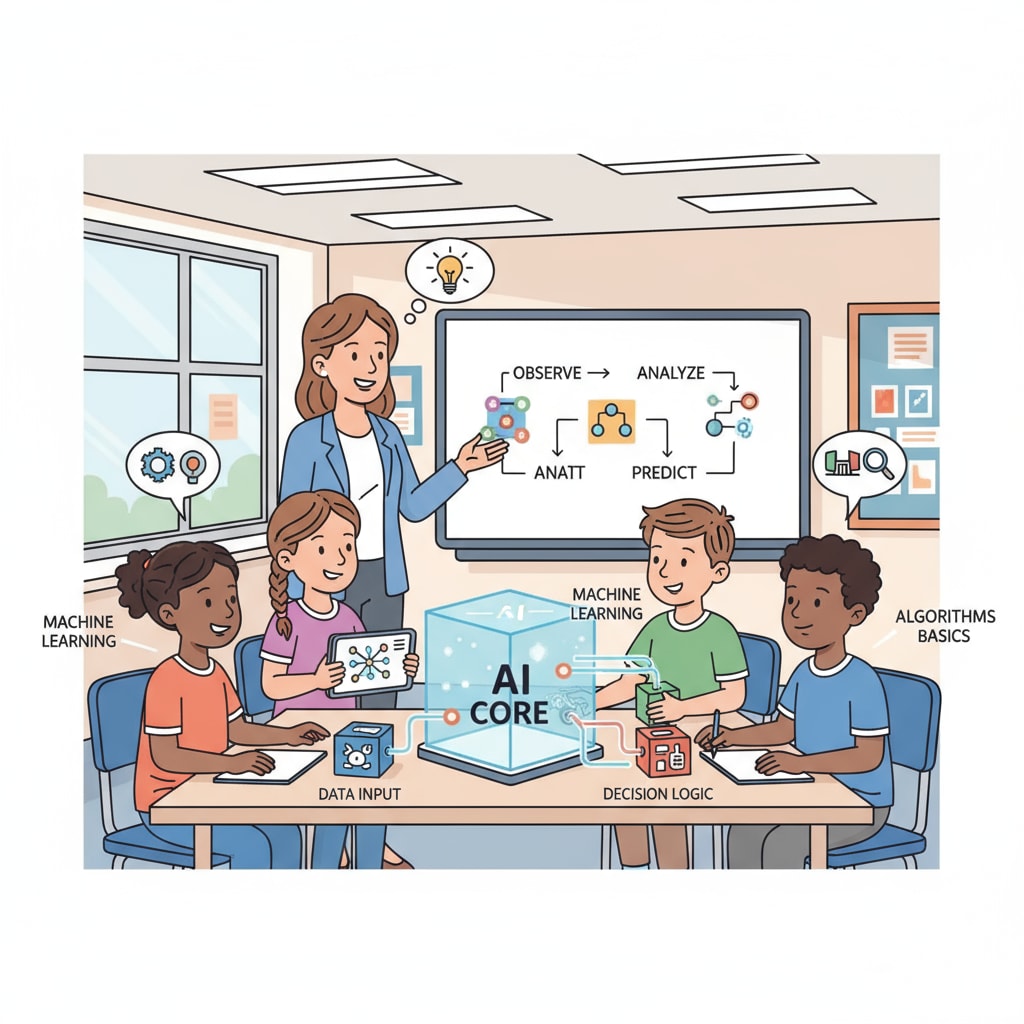In the era of rapid technological advancement, AI courses, prompt writing, and educational development have become intertwined, especially when considering the potential of AI literacy as the next compulsory course in K12 education. As artificial intelligence continues to reshape various aspects of our lives, it is imperative that students in the K12 system are equipped with the necessary skills to thrive in this AI-driven world.

The Necessity of AI Education in K12
AI is no longer a distant concept but an integral part of our daily lives. From virtual assistants like Siri and Alexa to recommendation algorithms on streaming platforms, AI is everywhere. In the K12 context, introducing AI education is crucial for several reasons. Firstly, it helps students develop critical thinking skills. By learning about AI algorithms and how they make decisions, students can analyze and evaluate information more effectively. For example, understanding how search engines rank results using AI can teach students to be more discerning when conducting online research. Secondly, AI education fosters creativity. As students explore the possibilities of AI, they can come up with innovative ideas for using this technology in different fields. Artificial intelligence in education on Wikipedia

Potential Content Structure of AI Courses in K12
The content of AI courses in K12 should be carefully designed to suit the age and cognitive level of students. At the elementary level, the focus could be on introducing basic AI concepts through fun and interactive activities. For instance, students could learn about simple robots and how they are programmed using basic algorithms. As students progress to middle and high school, the curriculum can delve deeper into more complex topics such as machine learning basics, data analysis, and ethical considerations in AI. Prompt writing also plays a significant role. Students can be taught how to write effective prompts to interact with AI tools, enabling them to obtain accurate and useful results. This skill is not only relevant in the context of AI but also enhances their overall communication and problem-solving abilities. Artificial intelligence on Britannica
In addition to technical knowledge, AI courses should also incorporate real-world applications. By studying case studies of how AI is used in healthcare, transportation, and environmental conservation, students can understand the practical implications of this technology. This holistic approach to AI education in K12 will prepare students to be informed and responsible users of AI in the future.
Readability guidance: This article uses short paragraphs to present key ideas clearly. Lists could be used in future sections to summarize important points. The passive语态 is kept to a minimum, and transition words like “firstly”, “secondly”, and “in addition” are used to enhance the flow of the article.


